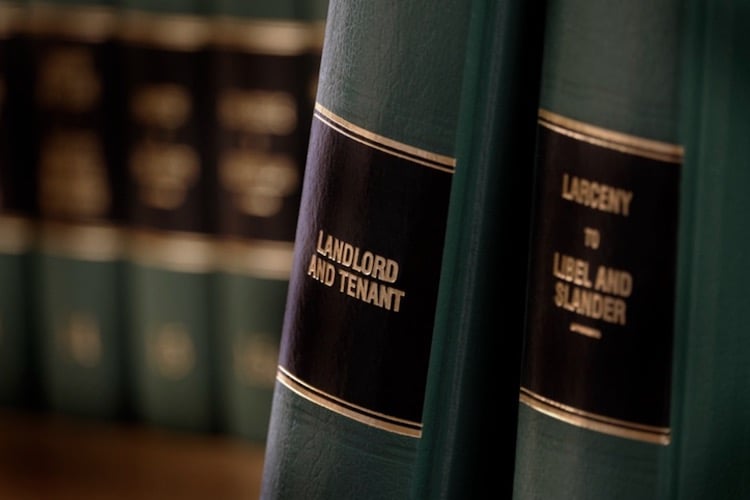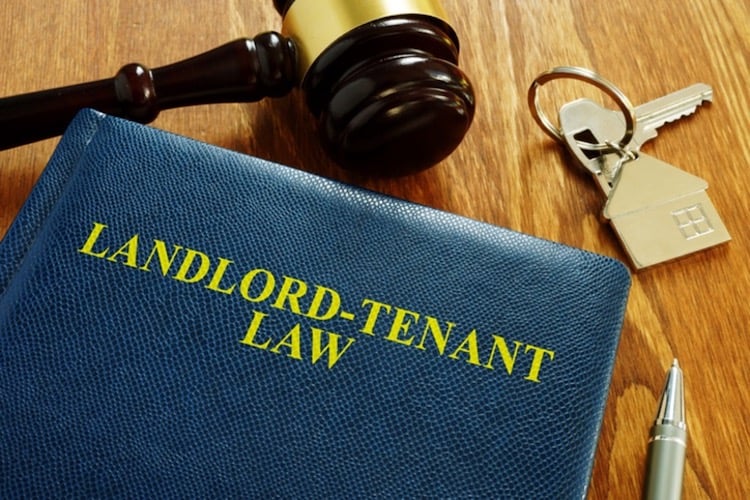Sometimes a rental property becomes uninhabitable due to no fault of the tenant or the landlord. A hurricane could strike, or a fire in the home next door might require the tenant to leave for a few days.
While a tenant might think it’s fair to move into a hotel room at the landlord’s expense, many landlords might disagree. Let’s take a look at some of the things that a landlord is responsible for, to help understand whether or not a landlord has to pay for a hotel room for a tenant.
Key Takeaways
- Implied warranty of habitability applies to all rental properties.
- Landlords are responsible for providing tenants with a safe and habitable place to live.
- Tenants may be entitled to compensation but not for the cost of a hotel room.
- Renters insurance can help protect tenants who become displaced.

Landlord Responsibilities to Tenants
In most states and cities, a residential lease includes an implied warranty of habitability, even if the lease does not explicitly say so, according to the Legal Information Institute (LII) at Cornell Law School.
In layman’s terms, habitable means that a tenant is entitled to a suitable and safe place to live. Under the implied warranty of habitability, a landlord must keep the rental property in a condition that is fit for humans to live in.
A landlord’s responsibilities as they relate to habitability generally fall into one of two categories:
Health & Safety
Each city and state has different safety code regulations. Some of the most common health and safety considerations in a rental property include:
Occupancy standards are normally addressed by state landlord-tenant laws, along with local safety and health codes, which govern the number of people that are allowed per bedroom. Too many tenants in a unit can create an unhealthy living environment within the property, and for the neighbors as well. Landlords are responsible for understanding local occupancy standards, and setting a limit to the number of tenants in the rental property.
Door and window locks should be in place and functioning to help keep the property and the tenants safe. Many landlords rekey the door locks and reprogram the garage door opener in between tenant turns, and also charge a fee for replacing lost keys and rekeying the locks.
Carbon monoxide and smoke detectors are often required by state and local safety laws. When conducting routine periodic inspections of the inside of the rental property, landlords or their property managers will verify that carbon monoxide and smoke detectors are functioning properly, and that batteries are charged if the units are not hard-wired into the electrical system.
Mold removal and remediation must be done by the landlord if mold is discovered in the rental property, even if the cause of the mold is due to tenant neglect such as failing to report a link under the kitchen sink. Landlords are also required to make any needed repairs to help prevent mold growth from occurring again.
Lead-based paint disclosure must be given to all tenants when leasing (or selling) housing built before 1978, prior to the tenant moving in. According to HUD, landlords must give tenants an EPA-approved lead-based paint hazards pamphlet, and disclose any known information and provide records or reports regarding lead-based paint. Most states have a lead-based paint disclosure addendum that may be added to the lease to comply with HUD and EPA guidelines.
Utilities provided by the landlord should be paid when due to avoid the property becoming uninhabitable due to lack of water or electricity. Small multifamily properties often have a common meter for water or gas, with utility service paid by the landlord and included as part of the tenant’s rent. Many landlords also create a “landlord account” for each utility service, so that when a tenant moves out utilities are immediately transferred to the landlord to speed up tenant turnovers.
Repairs & Maintenance
Good landlords and property managers think of tenants as clients and provide top-notch customer service by making sure the property is clean, well maintained, and quickly making any needed repairs:
- Keeping common areas of a small multifamily building safe, well lit, and free of debris.
- Regular landscaping or snow removal if they are the landlord’s responsibility.
- Performing seasonal maintenance such as servicing the heating and cooling systems twice a year, cleaning gutters, and ensuring windows frames are caulked and sealed.
- Repainting areas where paint is peeling to help prevent ingestion by the tenant, including families with small children.
- Conducting routine inspections of the interior and exterior of the property to identify and fix small inexpensive problems before they become large and costly.

Does a Landlord Have to Pay for a Tenant’s Hotel?
So what happens if a rental home becomes uninhabitable for a short period of time?
Even in well-maintained property or a brand new single-family rental, something unexpected can occur. The roof could be blown off during a freak 100-year storm, or rodent infestations could require the entire property to be fumigated.
During the time repairs are being made to return the property to a habitable condition, is the landlord responsible for paying for a tenant’s hotel or motel?
Tenants often believe that a landlord should pay for a short-term place to stay, assuming that the landlord’s insurance policy will cover the cost of the tenant’s hotel room. Of course, a landlord may offer to cover the costs of lodging for the tenant.
But more often than not, the landlord’s insurance policy will not pay for a tenant’s displacement. In most states, the landlord is not legally required to pay for a tenant’s hotel.
As the legal resource website Nolo.com explains, tenants are entitled to compensation for having to spend money on a hotel room, just not in the manner that a tenant may think.

How to Compensate a Tenant for Displacement
If a rental property becomes uninhabitable for a short period of time, the first thing for a landlord or property manager to do is review the lease. Oftentimes the lease agreement will have a clause that addresses what happens if the rental property is uninhabitable and the tenant is displaced due to no fault of the landlord.
Many landlords will divide the monthly rent by the number of days in the month, then multiply the amount by the number of days the unit is uninhabitable.
For example, assume the rent is $1,500 per month and the tenant needs to rent a hotel for three days in June. The tenant would be paid $150 ($1,500 monthly rent / 30 days in June x 3 days of displacement) by the landlord as compensation for having to live elsewhere for a few days.
Alternatively, a tenant may ask the landlord to cover the cost of staying in a hotel that is comparable to the home they are unable to live in. Sometimes, a tenant will also request that the landlord provide extra compensation for having to eat out instead of cooking at home.
There may be no rule that says a landlord has to agree to a tenant’s proposed compensation for displacement. However, a landlord may choose to be pragmatic, especially if the tenant has always paid the rent on time, takes good care of the property, and has been renting for an extended period of time.
In the event that a rental property becomes uninhabitable for an extended period of time, such as if a fire occurs, many state landlord-tenant laws require the landlord to release the tenant from the lease agreement. Rent paid in advance is prorated and returned to the tenant, along with any refundable security deposit held by the landlord.
Can a Tenant Stop Paying Rent?
As Nolo.com suggests, if a landlord isn’t willing to compensate a tenant for a hotel room, a tenant should not withhold the rent or make a deduction when the next rent payment is due.
A tenant may sue a landlord in small claims court for expenses incurred while being displaced from the rental property.
Some states are more tenant-friendly than others, and if a tenant can prove to the judge that the requested reimbursement expenses are reasonable, a tenant could end up winning the case and obtain a judgment against the landlord.

Renters Insurance Can Protect the Tenant
Many landlords require the tenant to pay for and carry a renters insurance policy in jurisdictions where the landlord-tenant law allows.
Renters insurance purchased by the tenant is usually affordable, covers the tenant for property loss or damage, and provides coverage for an accident at the residence.
As Farmers Insurance explains, renters insurance covers:
- Personal liability coverage if the tenant is found legally liable for bodily injury or property damage to someone else in an accident where coverage applies.
- Personal property damage even when the tenant is traveling and away from home.
- Additional living expenses such as when the tenant can’t stay in the rental property because of a claim.
Wrapping Up
While a landlord may not be required to pay for a tenant’s hotel room, in most jurisdictions a landlord is required to compensate the tenant by prorating the rent for the number of days a rental property is uninhabitable.
Sometimes tenants mistakenly believe that the landlord’s insurance policy will pay for displacement costs. Instead, many landlords ask their tenants to obtain an affordable renters insurance policy that will compensate the tenant for living expenses if the rental property can’t be occupied for a short period of time.









